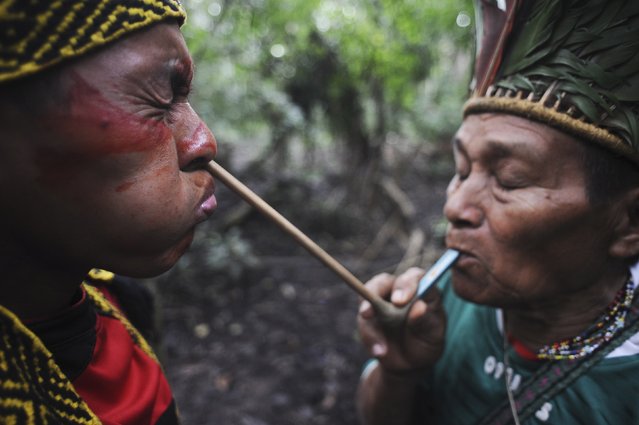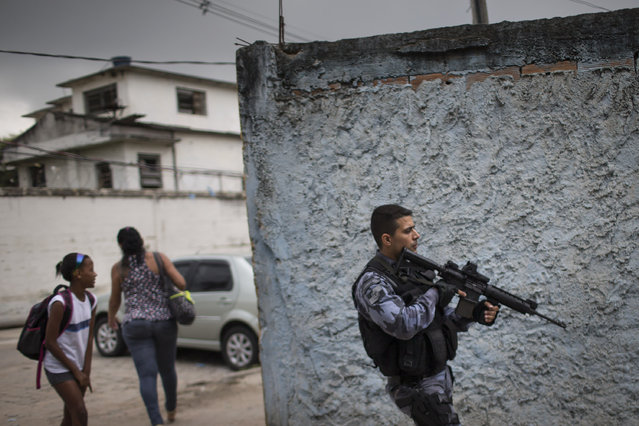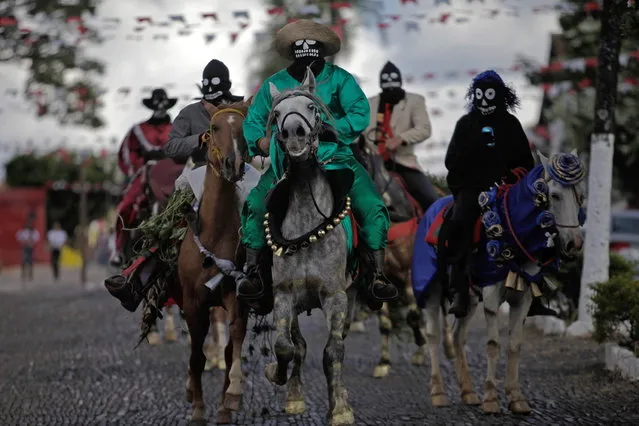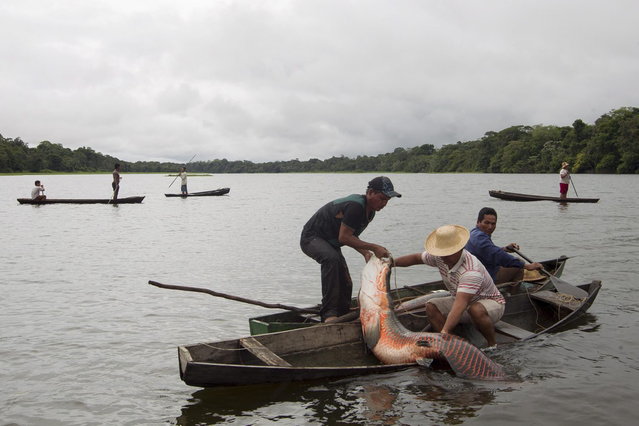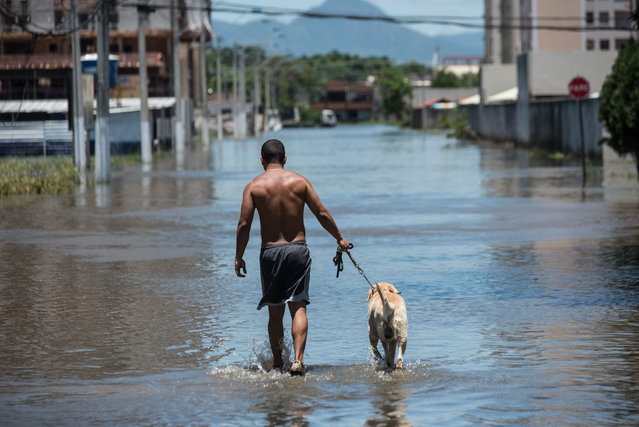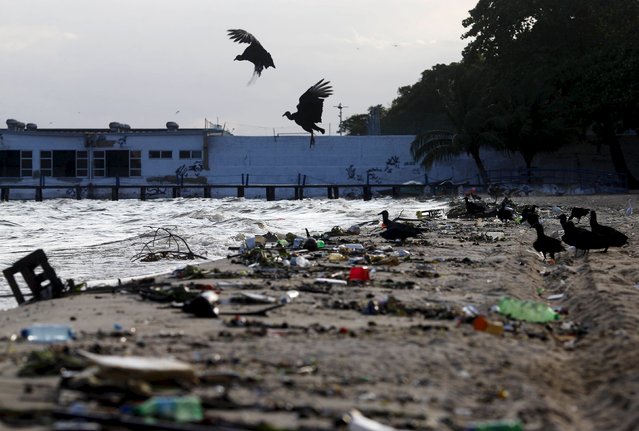
Supporters of Fernando Haddad react to a supporter (in yellow) of Jair Bolsonaro during a runoff election in Rio de Janeiro, Brazil on October 28, 2018. Bolsonaro, a brash far-right congressman who has waxed nostalgic for Brazil's old military dictatorship, won the presidency of Latin America's largest nation Sunday as voters looked past warnings that the former army captain would erode democracy and embraced a chance for radical change after years of turmoil. (Photo by Sergio Moraes/Reuters)
30 Oct 2018 00:01:00,post received
0 comments

